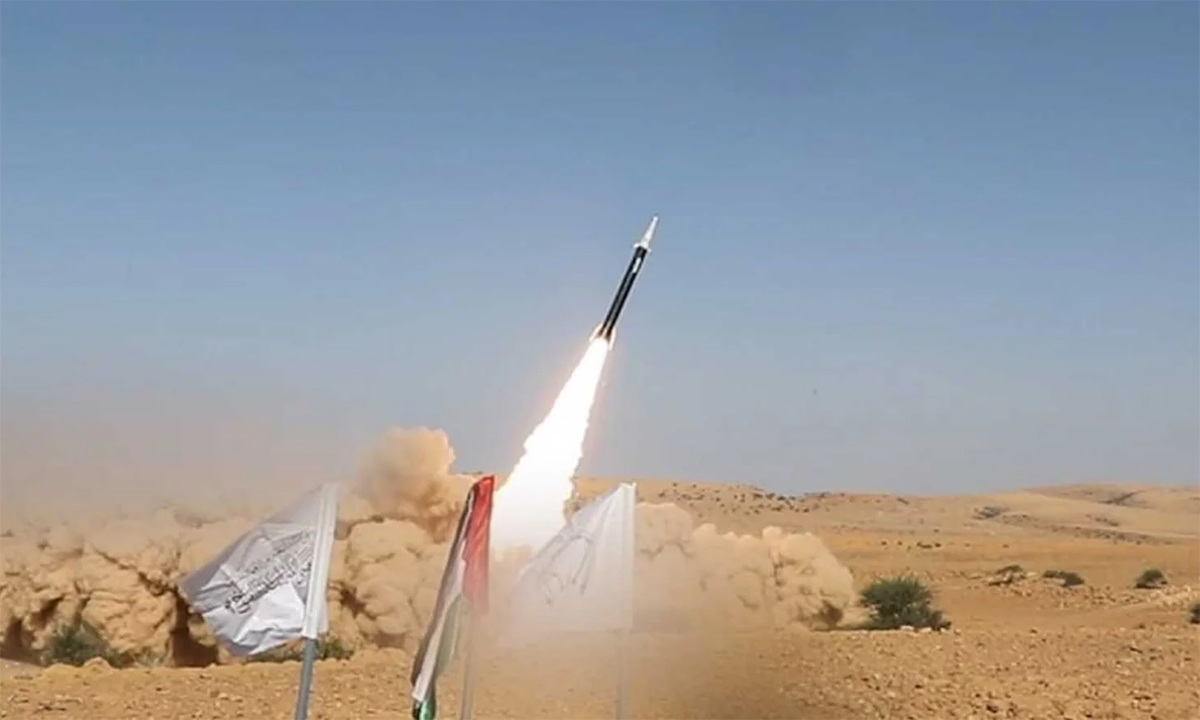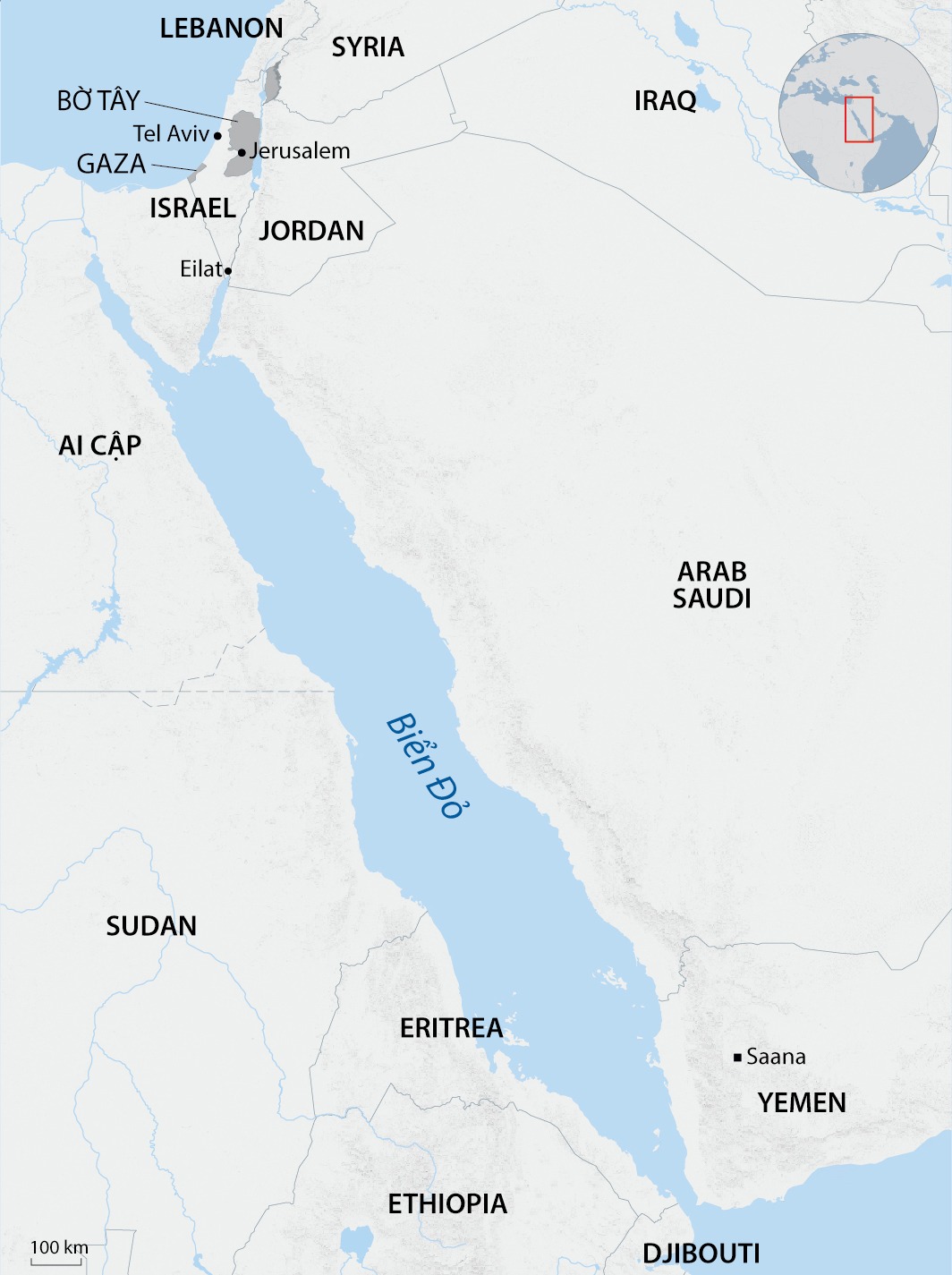Yahya Sarea, spokesperson for the Houthi armed group in Yemen, announced today that the group launched a Palestine 2 hypersonic ballistic missile targeting Ben Gurion Airport, east of Tel Aviv, Israel. He claimed the attack "achieved its objectives", disrupting air traffic in Israel and forcing thousands to seek shelter in the early morning hours.
The Houthi official emphasized that they would continue the attacks to support Palestinians in the Gaza Strip until Israel ceases its military operation and lifts the blockade of the area. "The Houthis are ready to face the possibility of Israeli escalation," he said.
 |
A Palestine 2 missile launches from Yemen during an attack in January. Photo: Al Mayadeen |
A Palestine 2 missile launches from Yemen during an attack in January. Photo: Al Mayadeen
The Israel Defense Forces (IDF) announced the same day that it successfully intercepted a missile launched from Yemen towards Israel. Israeli Channel 12 television reported that debris from the downed missile caused a fire near Jerusalem. There were no immediate reports of damage or casualties.
The attack came after Israel and Hamas announced an agreement to resume talks in Qatar regarding hostages and a ceasefire in the Gaza Strip. The Islamic Jihad organization, Hamas's ally in Gaza, also declared support for negotiations towards a ceasefire, but demanded guarantees that Israel would "not continue acts of aggression" after the hostages are released.
The Houthis began attacking Israel and ships they claim are linked to the country in the Red Sea in 11/2023, declaring it an act of solidarity with their ally Hamas and the people in the Gaza Strip.
The US and its allies have repeatedly attacked Houthi targets in 2024 to force the armed group to stop its Red Sea campaign. The operation intensified from 15/3, with US officials claiming to have hit over 800 targets in over a month, killing hundreds of Houthi members and commanders.
Despite the intense airstrikes, the Houthis continued to launch missiles and unmanned aerial vehicles (UAVs) at US warships, as well as firing ballistic missiles towards Israeli territory. The group also claimed to have shot down 22 US MQ-9 Reaper armed UAVs during the Red Sea campaign. Some US F-16 fighters and F-35 stealth fighters were also reportedly nearly hit by anti-aircraft missiles.
 |
Location of Yemen and Israel. Graphic: AFP |
Location of Yemen and Israel. Graphic: AFP
US President Donald Trump unexpectedly announced a ceasefire agreement with the Houthis in early May. Under the agreement, Washington would halt its bombing of the Houthis, and the armed group would cease attacks on US warships in the Red Sea. However, there was no provision requiring the Houthis to end attacks on Israeli territory and ships linked to the country in the Red Sea.
On 4/5, a Houthi ballistic missile penetrated Israel's modern multi-layered air defense network, hitting Ben Gurion International Airport on the outskirts of Tel Aviv and injuring several people.
Nguyen Tien (According to AP, Xinhua, Times of Israel, Al Masirah)












